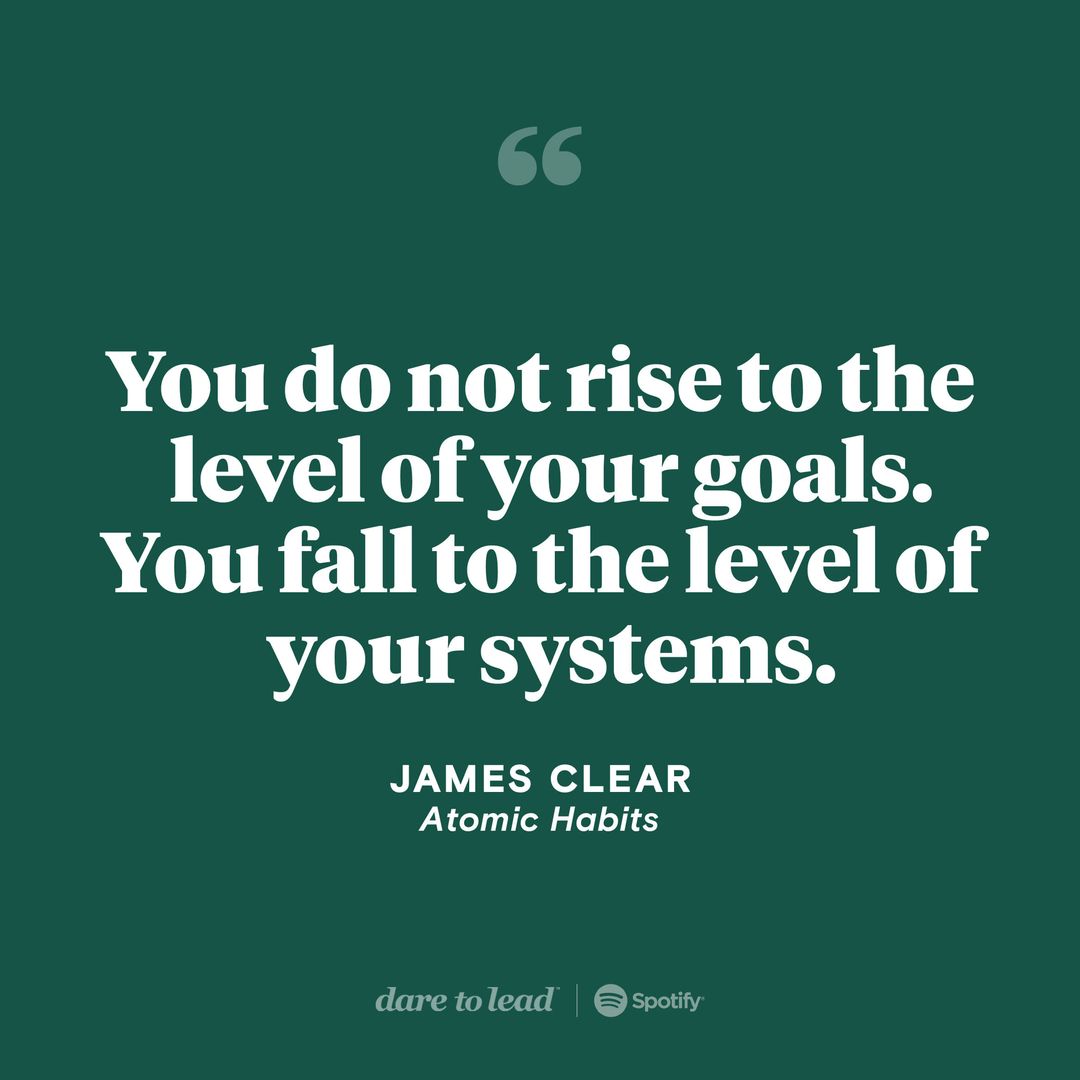I love Brene Brown’s Dare to Lead podcast and recently she had on James Clear to talk about his book creating identity-based habits. There are 2 episodes and I would highly recommend listening to but one point that I think is absolutely critical for us as educators to hone in on is this: You don’t rise to the level of your goals, you fall to the level of our systems.
Think about it, we can say that we want all learners to be critical thinkers and lifelong learners. We can say that we value the whole child and have goals to develop global citizens but if our systems are only set up to prioritize focus on narrow metrics of success, we will fall short of our actual goals. After listening to the podcast I was reminded of what I wrote about this in Evolving Education and here is a passage that goes deeper on this point.
Setting Goals and Aligning our Systems
When we set goals, we are more likely to achieve them. Goal setting is a habit that needs to be modeled, practiced, and reflected on to guide students toward building critical skills and developing as skilled learners who can set and achieve their academic, social, and emotional goals. As a middle school teacher, for each project students undertook, I would create or co-create with my students a list of milestones that needed to be completed by specific dates or in a certain progression. We would agree on timelines and create time to reflect on their progress and give and receive feedback to ensure they were on track. This helped them have agency in the process and understand what was expected of them rather than waiting for me to tell them what to do and turn in each day. #GameChanger
This process was really helpful for my students and me. It’s important, however, that goal setting is not narrowed down to a mere focus on data and metrics. If personalized learning is reduced to program metrics and advancing to new levels or content without purpose or application, we might achieve our goals but not meaningful results. The purpose of personalized learning and overall learner-centered practices is that students learn how to learn, understand why it matters, and develop the skills to navigate their path beyond school.
James Clear, bestselling author of Atomic Habits, teaches us that goals alone are not enough, nor is a narrow focus on the metrics:
If you completely ignored your goals and focused only on your system, would you still succeed? For example, if you were a basketball coach and you ignored your goal to win a championship and focused only on what your team does at practice each day, would you still get results? I think you would. The goal in any sport is to finish with the best score, but it would be ridiculous to spend the whole game staring at the scoreboard. The only way to actually win is to get better each day. In the words of three-time Super Bowl winner Bill Walsh, “The score takes care of itself.” The same is true for other areas of life. If you want better results, then forget about setting goals. Focus on your system instead.
Atomic Habits
This is important to remember, as we can get so focused on getting data to show growth and shortsighted metrics of success. That is, we have to be patient and build systems for learners to learn how to learn, and to move forward, we must be mindful of the barriers that exist in learning. It is important to create systems that can ensure students have clear milestones or checkpoints, guidance, and accountability to make progress toward their goals.
I encourage you to think about your goals and see if your systems are aligned to get you there.



0 Comments